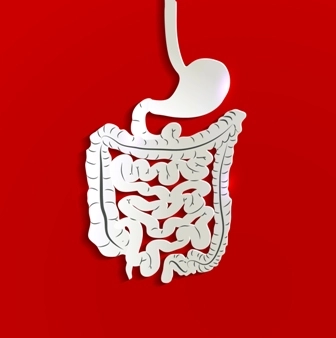Part B Insider (Multispecialty) Coding Alert
Get the Scoop on How to Code All Types of Colorectal Screenings

From FOBT to screening barium enemas, know how to report these services. Gastroenterologists often perform multiple colonoscopies per week, but those probably aren’t the only colorectal screening services they conduct. In order, to collect appropriately for all of these screenings, you must understand Medicare’s rules and know which codes apply. Check out the following four steps before you turn in your next screening claim. Step 1: Pinpoint Screening Frequency Rules Medicare reimburses multiple procedures for the early detection of cancer. The frequency restrictions for these tests depend on the patient’s risk category. Check the following list for deciding eligibility for average risk/asymptomatic patients (beginning at age 50 years): 1. Between 50 and 85 years of age. The frequency rules for high-risk patients (No age restriction) are: One other option listed in some places as a primary screening test is computed tomography colonography (CTC). However, virtual CT is not indicated for primary screening. For Medicare, it may be covered under certain condition such as failed optical colonoscopy or some severe comorbid health conditions. Exception: Other than the tests mentioned above, physicians may also order one of the following tests for screening. However, these are non-covered colorectal cancer screening tests: 1. Magnetic resonance imaging (MRI) colonography: This procedure is considered experimental and investigational for the screening or diagnosis of colorectal cancer, inflammatory bowel disease, or other indications because its value for these indications has not been established. 2. Wireless Capsule Endoscopy (WCE): WCE (i.e. PillCamTM) is accomplished by encasing video, illumination and transmission modules inside a capsule the size of a large vitamin pill. WCE is NOT a covered benefit for general screening. 3. Virtual Colonoscopy or CT Colography: Several states have their own rules about coverage of CT colography for non-Medicare patients, so you may need to check your own state’s rules to determine if this test is covered for primary colorectal cancer screening. 4. Septin 9™ blood test. Step 2: Identify ICD-10 Codes That Support Risk Although all patients above 50 years of age are eligible for colorectal cancer screening tests even in absence of any symptoms, a patient must fall into the high-risk category for colorectal cancer to qualify for a screening colonoscopy or screening barium enema before age 50. For a patient to be classified as high risk, you have to use a certain diagnosis. You won’t get paid just because the patient has colorectal cancer screening as a benefit. To be reimbursed for the screening, check the gastroenterologist’s notes for an accepted diagnosis code denoting the high-risk status of the patient with the procedure code. The following ICD-10 codes are some examples of diagnoses that meet the high-risk criteria for colorectal cancer: Other than these primary diagnoses, some secondary diagnoses from among the following family of diagnostic codes may also apply: The final determination of an appropriate diagnosis for being at high risk has been left with the local Medicare contractors, however, and the codes that each one will accept can vary significantly, says Glenn D. Littenberg, MD, MACP, FASGE, AGAF, a gastroenterologist and former CPT® Editorial Panel member in Pasadena, California. Step 3: Pick the Proper Screening HCPCS Code In addition to using the correct diagnosis code, gastroenterologists should bill their Medicare claims for asymptomatic patients with the proper HCPCS code for the specific screening service provided. You should use the following HCPCS codes with Medicare claims for colorectal cancer screening services for high-risk patients: Gastroenterologists should use G0121 when the patient fits the once-every-10-years interval and should not be surprised to see a Medicare denial if the prior colonoscopy was less than nine years 11 months prior. In that case, the physician may not be able to bill the patient for the service unless an Advanced Beneficiary Notice was obtained. Cologuard™ is only billed under CPT® code 81528 (Oncology (colorectal) screening, quantitative real-time target and signal amplification of 10 DNA markers (KRAS mutations, promoter methylation of NDRG4 and BMP3) and fecal hemoglobin, utilizing stool, algorithm reported as a positive or negative result), but the billing comes from the company which markets the kit, not from the physician’s office; the physician provides a “prescription” (form to fill out as a lab order) and the company then acts on the order and ultimately provides a report to the ordering physician, Littenberg says. Step 4: Separate Screening from Diagnostic Services You should never report colorectal screening services with the codes that apply to diagnostic services. Use the HCPCS codes when the patient is asymptomatic, regardless of whether he is at high risk for colorectal cancer. If the patient comes in with a symptom such as blood in stool and the gastroenterologist performs a colonoscopy, then you should bill the appropriate sigmoidoscopy or colonoscopy procedure codes 45330 (Sigmoidoscopy, flexible; diagnostic, including collection of specimen[s] by brushing or washing, when performed [separate procedure]) or 45378 (Colonoscopy, flexible; diagnostic, including collection of specimen[s] by brushing or washing, when performed [separate procedure]) for the diagnostic service. Likewise, fecal-occult blood tests for diagnostic evaluation of symptomatic patients should be billed using the CPT® code 82274 (Blood, occult, by fecal hemoglobin determination by immunoassay, qualitative, feces, 1-3 simultaneous determinations). If the GI converts a screening test into a diagnostic endoscopy due to abnormal findings, you should bill the appropriate CPT® code with modifier PT (Colorectal cancer screening test; converted to diagnostic test or other procedure) instead of the screening code (for non-Medicare payers, the equivalent is modifier 33). Gastroenterologists also should ensure that patients referred to them for colorectal screenings are actually asymptomatic. Many times, patients are referred for a screening when they really have symptoms, and you should code those procedures as diagnostic. Reference: To read the complete fact sheet on colorectal cancer screening, visit the CMS website at www.medicare.gov/coverage/colorectal-cancer-screenings.
2. They show no signs or symptoms of colorectal disease including, but not limited to, lower gastrointestinal pain, blood in stool, positive guaiac fecal occult blood test, or fecal immunochemical test.
3. They’re at average risk for developing colorectal cancer, meaning they have no personal history of adenomatous polyps, colorectal cancer, or inflammatory bowel disease, including Crohn’s Disease and ulcerative colitis.
4. They have no family history of colorectal cancers or adenomatous polyps, familial adenomatous polyposis, or hereditary nonpolyposis colorectal cancer.
Related Articles
Part B Insider (Multispecialty) Coding Alert
- Part B Payment:
CMS Shakes Up E/M Payments Starting in 2021
Don’t panic — level 5 codes maintain their higher payouts. For Part B providers, E/M [...] - Evaluation and Management:
Prep Now for These 2019 E/M Policy Changes
CMS staggers E/M updates from 2019 through 2021, relates MPFS. If you guessed the feds [...] - Compliance:
CMS Updates PIM With LCD Guideline Revisions
Medicare guidance suggests MACs nix codes from LCDs in the future. As the agency steamrolls [...] - Part B Coding Coach:
Get the Scoop on How to Code All Types of Colorectal Screenings
From FOBT to screening barium enemas, know how to report these services. Gastroenterologists often perform [...] - Physician Notes:
Feds Create Another Medicare Fraud Strike Force Team to Fight Opioid Crisis
Plus: Input this new flu vaccine into your code checklist. Over summer, the Department of [...]


